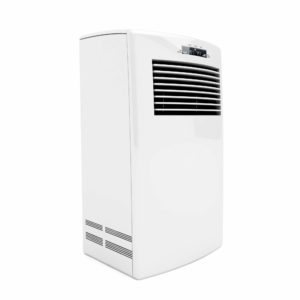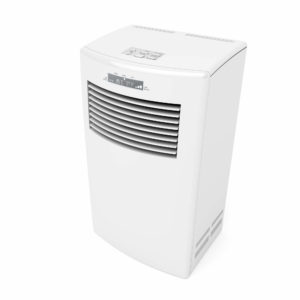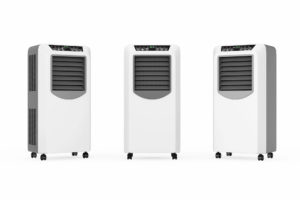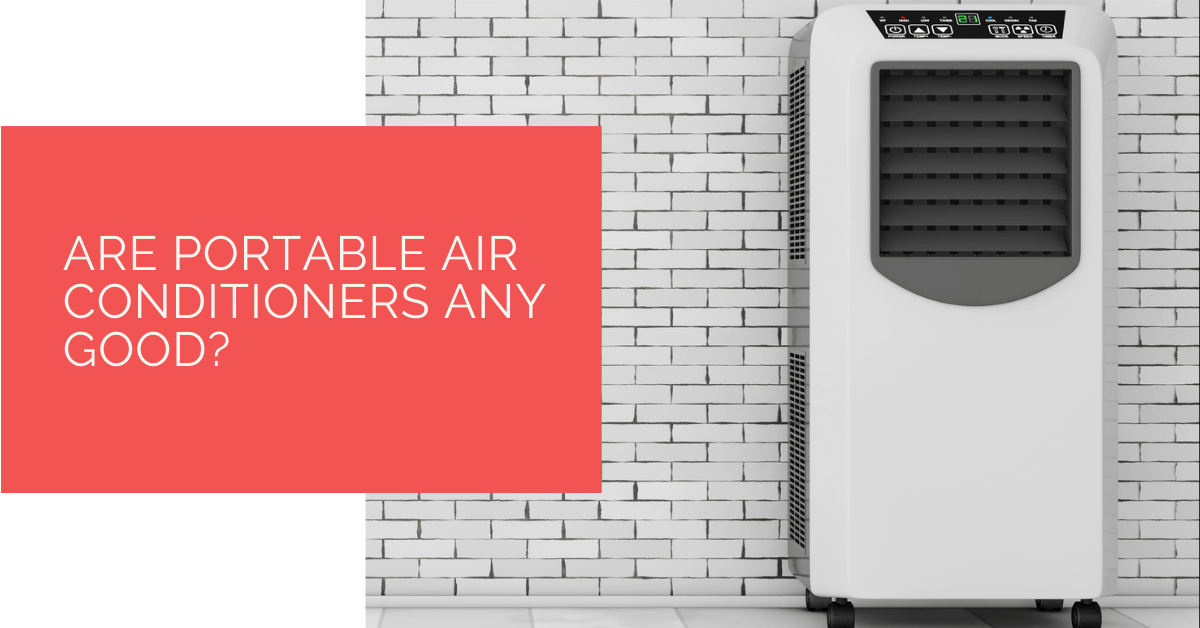As the calendar turns to summer and the temperature rises, it’s essential to consider how you’ll prevent the excess heat from disrupting your enjoyment. You don’t need to do any work if you already have the best air conditioner with air purifiers and air filter; replace the filters, adjust fan speed, adjust settings, and you’re good to go.
If you do not have air conditioning, though, now is the time to make preparations so you don’t get caught unawares by a sudden heatwave. If you want cool air, you have a few alternatives, including a portable air conditioner. Though they’ve grown in popularity over the last decade, are portable air conditioners any good?
Since so many people are unsure whether or not to purchase this cooling system, we decided to write this post to address those concerns. Allow this to be your one-stop solution for all your PAC questions.
We’ll see how the best portable air conditioners compare to other cooling systems, in which scenarios they function best, their drawbacks, and things to consider when utilising them.
Contents
- 1 Key Takeaways
- 2 How Does a Portable Air Conditioner Work?
- 3 Difference between the two ACs
- 4 Why Portable ACs?
- 5 Common Misconceptions
- 6 Factors that Influence the Efficiency of your Air Conditioner
- 7 Advantages of Portable Air Conditioners
- 8 Disadvantages of Portable Air Conditioners
- 9 Advice on selecting a Portable Air Conditioner
- 10 How to Care for your Portable Air Conditioner?
- 11 Heat Pump Source: Reliable Heating and Cooling Solutions
- 12 Conclusion
Key Takeaways
- Portable air conditioners (PACs) operate similarly to other AC units, absorbing indoor heat and venting it outside through an exhaust hose.
- Advantages of PACs include portability, cost-effectiveness in cooling specific rooms, low maintenance, and the availability of Wi-Fi control.
- Disadvantages of PACs include their weight, noise level, and the need to select the right size unit based on BTU rating.
How Does a Portable Air Conditioner Work?
Portable air-cons operate similarly to any other type of air conditioner, whether a window unit or a central system. A chemical refrigerant circulates through a network of coiled tubes, absorbing heat from the interior. The heat is subsequently vented to the outside via an exhaust hose.
Difference between the two ACs
 The critical distinction is that heat is emitted from the section of the unit that hangs out the window in a window AC and is permanently installed. On the other hand, warm air is directed outside through a single or dual hose that resembles a flexible dryer output in portable units. A portable air conditioner usually comes with a single hose and a window kit, allowing you to quickly and conveniently set up the venting system.
The critical distinction is that heat is emitted from the section of the unit that hangs out the window in a window AC and is permanently installed. On the other hand, warm air is directed outside through a single or dual hose that resembles a flexible dryer output in portable units. A portable air conditioner usually comes with a single hose and a window kit, allowing you to quickly and conveniently set up the venting system.
Why Portable ACs?
Portable units give you no building restrictions. They have a cooling effect in your whole room and are big on energy efficiency. But room size is a significant factor.
Common Misconceptions
It’s a common misperception that the same unit may be moved around to other rooms on the spur of the moment.
Shifting portable models around necessitates moving their exhaust vent due to exhaust air through an open window. While window units make this easier, many people will find them less practical than transporting a space heater from one room to another.
Factors that Influence the Efficiency of your Air Conditioner
It’s no secret that cooling costs a lot of money and a long electricity bill. To keep your house temperature normal, an ac unit consumes a large amount of electricity, irrespective of the type you choose. How frequently your portable or window air-con unit turns on – and how long it remains on – will determine your total cost. Several factors will determine this:
The Climate
The very nature determines your monthly bill. The more hot air you have to evacuate from your house, the hotter outside. It doesn’t take as much energy to cool a room to 72 degrees on a 77-degree day as it does to get cool on a 95-degree day.
On the hottest afternoons, you can reduce your spending by turning up your thermostat. Although you’ll still feel colder inside than outside, your portable AC or regular air conditioner won’t have to work as hard.
You may also aid your AC’s performance during hot weather by ensuring that your home is well ventilated and blocking off harsh sunlight with sliding windows, blinds, and drapes.
Room Size and Dimensions
 Your air conditioning system must be sized appropriately to provide enough cooling capacity to make your rooms significantly more pleasant and offer you a good night’s sleep. A single window air conditioner, for instance, will never be sufficient to chill a whole home. An air conditioner that is too small will run all the time, cost you a lot of money, and still not make you happy.
Your air conditioning system must be sized appropriately to provide enough cooling capacity to make your rooms significantly more pleasant and offer you a good night’s sleep. A single window air conditioner, for instance, will never be sufficient to chill a whole home. An air conditioner that is too small will run all the time, cost you a lot of money, and still not make you happy.
What to keep in mind?
PACs are rated in British thermal units (BTU). Look at your PAC’s BTU rating, which indicates the unit’s cooling capability, to ensure it’s the right size for the room you want to chill. A unit with 8,000 BTUs should be enough for smaller rooms of 200 square feet. Look for a portable air conditioner with 14,000 BTUs for a 600-square-foot living area.
You should scale up in terms of cooling power if you’re seeking to cool a kitchen. All of those appliances generate a lot of extra heat, making your unit work even harder to complete the task.
Price of Electricity
The power price and how much energy you consume will determine the cost of running your portable air conditioner in your area. Getting cooled air throughout a rare heatwave in May won’t cost you as much as finding respite in August because these expenses tend to climb with demand during the warmest summer months.
It may even be cheaper to use your portable AC at night than during the morning if you are susceptible to fluctuating pricing during peak seasons. All of this is to imply that your experience may vary as to whether the price of operating a portable air conditioner is a worthwhile trade-off on a hot day, or perhaps you’d instead stick to a fan or an evaporative cooler alternatively.
Know which mode to use
Most models come with many fan modes and fan speeds. Some may have three fan speeds; other models may have LCD display, sleep mode, programmable timer etc.
Advantages of Portable Air Conditioners
Depending on your cooling needs, you can benefit from using the best portable air conditioners. These include:
Portability and Installation Ease
The most apparent advantage that portable air con units provide is portability. These gadgets are made to be easily moved from one room to another. Furthermore, when compared to window air conditioners, which require a specific window and typically two people to install, they are simple to set up and do not necessitate any changes to the room’s interior.
You don’t need a window for ventilation or remote control with portable ACs, and they’re simple to set up on your own. Since these units are energy-efficient and self-contained, they may be placed anywhere in your home, regardless of whether you have a window or not.
As a result, portable AC units give you the freedom to chill different areas in your house without dealing with extensive and generally irreversible mechanical installations.
Portable ACs are cost-effective
When saving money is concerned, are portable ACs worthwhile? They certainly are.
Portable ACs have been shown to help you save money on your power bill by reducing the amount of energy you consume while utilising air conditioning systems like a central AC. When contrasting the cooling capacity of a portable air conditioner to a central air conditioner, the former can help you save money on your monthly energy expenses if you know how to utilise it properly. A portable air conditioner (PAC) can keep a single room cool in the hot summer months, with no disruptive installation required and at a much lower cost than house-wide systems.
Using this gadget to control the temperature inside a single area of your house while leaving your central AC off can save you a lot of money on electricity.
Low-to-no-maintenance requirements
Of course, PACs cost money to run, and we take energy efficiency and performance into account in our portable air conditioner is a good option. You do not have to look after it daily if you get the best portable air conditioner with a self-evaporative, energy-efficient structure. This is because these models evaporate the water accumulated during the dehumidification process. Emptying a collection tank or connecting a drain tube to a vent is no longer necessary.
Availability of Wi-Fi Control
Thanks to current market trends, you can now upgrade from the conventional remote control and buy Wi-Fi-equipped air conditioners or modify an existing model to function with a smartphone or tablet. Wi-Fi portable ACs come with a smartphone app to operate them anywhere.
Some of the most well-known manufacturers, such as Frigidaire, LG Electronics, and Kenmore, have embraced this new technology and developed amazing apps with numerous valuable functions. Furthermore, you do not need to purchase a Wi-Fi portable air conditioner; you can upgrade your existing AC to accommodate Wi-Fi control.
To do so, all you need is a Smart/Wi-Fi controller with mobile capabilities. Voice control is also possible with some controllers thanks to Apple HomeKit, Google Home, and Amazon Alexa.
Disadvantages of Portable Air Conditioners
While portable ACs have some advantages, they are not without flaws. You may encounter the following drawbacks when utilising even the best portable air conditioner.
Air conditioners aren’t “easily” transportable
As strange as it may seem, portable air conditioners might be tough to transport. While they can potentially be moved between rooms, they’re frequently rather heavy, weighing up to 70 pounds or more.
Many portable ACs do, however, have wheels that make them easier to move around. However, this is not a feature available to all portable ACs.
Also, getting an AC through it may not be easy if you have thick carpeting in your house. Please remember that if you’re physically challenged or have trouble lifting or moving big goods, you might not be able to carry a portable AC unit as much as you expected.
Noise can play a role
 Portable ACs are the noisiest of the different air conditioning systems on the market. These appliances have an average noise level of 70 decibels, comparable to a dishwasher or vacuum cleaner.
Portable ACs are the noisiest of the different air conditioning systems on the market. These appliances have an average noise level of 70 decibels, comparable to a dishwasher or vacuum cleaner.
If you like a calm environment with minimal outside noise, installing a portable unit in your room may not be the ideal choice.
Buying the Right Size Unit can be Confusing
Knowing which device is the best bargain with various BTU values available for portable air conditioning units. BTUs are heat measurement units. Said, this is the maximum amount of floor space that a portable air conditioner can effectively cool. Some portable ACs have a high BTU rating (14,000), while others have a low rating (5,000).
This is crucial information for selecting the sort of portable air conditioner to employ to cool a room. If you want to cool a large room, you should get a portable air conditioner with a high rating and vice versa.
Advice on selecting a Portable Air Conditioner
Proper air conditioning is now within everybody’s budget! You must, nevertheless, understand how to operate your air conditioning device. The first thing to remember is that you should locate your AC near a window irrespective of type: the smaller the evacuation circuits, the higher the effectiveness.
Tips To Remember
The Hose
Resist expanding the dual elastic hose that comes with your equipment at all costs. If you leave it too long, condensation will build up inside, and mould will swiftly grow. Set your air conditioning unit’s target temperature no more than 8°C lower than the highest outdoor temperature to minimise heat shock.
The Filters
Clean the filters and exhaust hoses regularly to ensure optimal air quality. At the same time, drain the water tank(s). For regular use of 3–4 hours, anticipate an average consumption of roughly 15% per month for an intermediate air conditioning unit. As a result, it’s advisable to go with a customisable model with a high COP and a class A energy certification.
Packing It Up
Before unplugging your AC in autumn, run it for a few hours in ventilation-only or dehumidifier mode to dry all the pipes and ducts for storage. Follow the same routine in spring for several hours when the heat picks up.
How to Care for your Portable Air Conditioner?
Maintenance is required, just like it is for any other device, to ensure that your air conditioner continues to perform smoothly. If you choose a split system, you’ll have to work your charm on both the unit’s unit’s exterior and interior. Everything takes place inside a single box in monoblock systems.
Cleansing the filters and emptying the water tank are usually the only things that need to be done. Generally, whichever model you choose, you shouldn’t have much difficulty. You should, nevertheless, ensure to descale your AC once a year.
Heat Pump Source: Reliable Heating and Cooling Solutions
At Heat Pump Source, we take pride in our unwavering commitment to serving the UK with top-tier HVAC solutions. From the efficiency of heat pumps and the cool relief of air conditioning to the warmth of boilers, radiators, and underfloor heating, our dedicated team is always at the forefront of innovation. We understand the unique needs of every household and business, and we strive to provide dependable health and cooling products and services that are tailored just for you. Ensuring your comfort and satisfaction is our utmost priority. Whether you have questions, need guidance, or require support, we’re always here to assist. Please don’t hesitate to contact us; we’re eager to be of service.
Conclusion
As you already know, there are various advantages to purchasing a portable air conditioner. If you’re looking for a portable, easy-to-install appliance that will help you save energy, a portable air conditioner is a great option.
Nevertheless, if you do so, you should be aware that even the best portable air conditioner can be noisy, cumbersome to relocate, and require a precise BTU measurement to be the most beneficial for your cooling demands. Read more about Portable evaporative coolers vs portable heat pump air conditioners.
Before buying a portable air conditioner, make sure to estimate the size of your space and check the BTU rating. Doing so will help you keep your home efficiently cool and get the most from your cooling system. However, in the end, evaluating whether portable air conditioners are practical and valuable or not is a personal decision.
About the Author
At Heat Pump Source, our articles are the product of a collaborative effort among a team of highly skilled HVAC experts. Our dedicated professionals, hailing from diverse backgrounds in heating, ventilation, air conditioning, and refrigeration, contribute their extensive knowledge and experience to every piece of content. This multidisciplinary approach ensures comprehensive coverage. Our commitment is to deliver authoritative, reliable, and tailored advice to meet the unique needs of every household and business across the UK.

